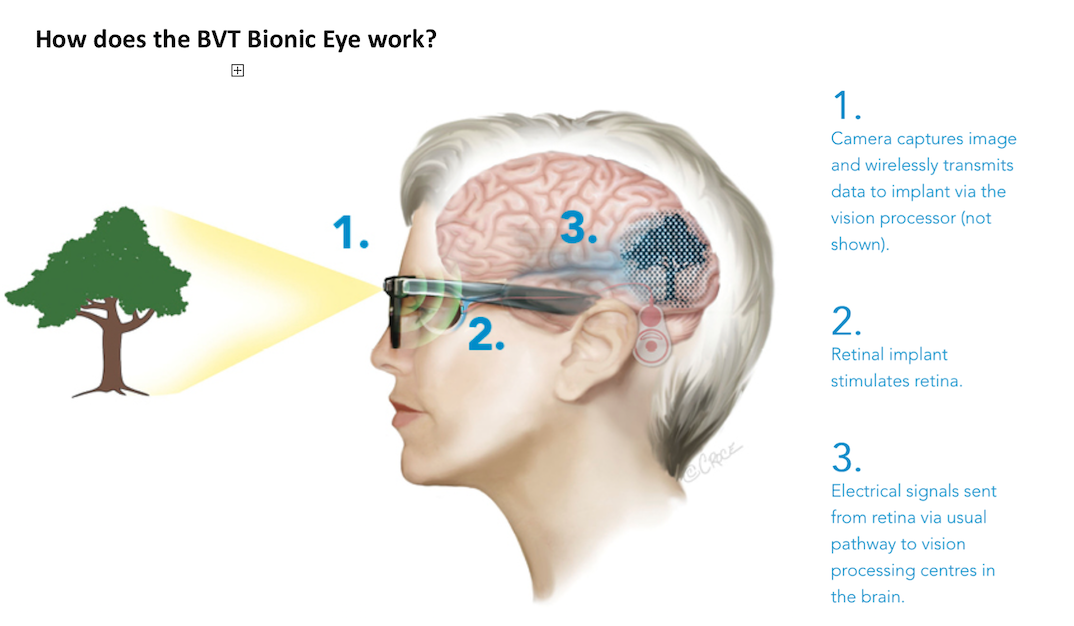Channels
Special Offers & Promotions
Restoring Sight: Clinical Progress Towards Australia
Bionic Vision Technologies Pty Ltd (BVT) has announced that medical researchers have successfully restored a sense of vision in four blind people with its bionic eye as part of a clinical trial in Melbourne.
 Researchers said they were “very pleased” with the progress of all four patients who have had a “sense of sight” restored. All four have a degenerative genetic condition called Retinitis Pigmentosa which causes loss of vision.
Researchers said they were “very pleased” with the progress of all four patients who have had a “sense of sight” restored. All four have a degenerative genetic condition called Retinitis Pigmentosa which causes loss of vision.
Principal investigator Associate Professor Penny Allen made the announcement to the annual Royal Australian and New Zealand College of Ophthalmologists Scientific meeting in Adelaide.
An earlier study of three patients established the safety of a prototype but restricted use to the lab. The new study uses a permanent device that can be used every day.
Assoc Prof Penny Allen, of the Centre for Eye Research Australia and head of the Vitreoretinal Unit at The Royal Victorian Eye and Ear Hospital, said, “We have completed surgeries on four patients to implant the device and the team is very pleased with their progress. All four patients have had a sense of sight restored and are in the process of learning how to use the bionic eye for mobility and other activities.”
“Each of the patients has returned home after surgery and are working with the clinical and research team to learn to use the device and incorporate it into their everyday lives.
“We believe the Australian bionic eye being tested has advantages over international competitors, including a superior surgical approach, stability of the device and unique vision processing software that aims to improve the patient’s experience.
“At the moment, we are focused on patients who have vision loss due to Retinitis Pigmentosa, an inherited genetic condition.
“Based on our results so far, we know that our approach is safer and less invasive, and the patients have all made impressive progress with mobility and activities of daily living,” Assoc Prof Allen said.
Chairman of Retina Australia, Leighton Boyd said, “We welcome developments like this which potentially provide support and independence to the many people and families affected by this genetic condition. The ability to regain a sense of sight will make a positive difference to the lives of people diagnosed with Retinitis Pigmentosa.”
Retinitis Pigmentosa is a debilitating genetic disorder that leads to loss of vision. It affects about one in every 4,000 people, affecting 1.5 million people worldwide. It is the leading cause of inherited blindness. There is currently no cure.
How the Bionic Vision Technologies (BVT) Pty Ltd bionic eye works
The BVT developed bionic eye consists of implanted and body worn components. The patient wears glasses with a small video camera mounted on the side. The live feed from the camera is processed and transmitted via an implanted microchip to an electrode array placed in a naturally occurring pocket behind the retina, called the suprachoroidal space. The electrodes stimulate remaining cells in the retina, to generate spots of light that give a patient a sense of vision.
Media Partners



